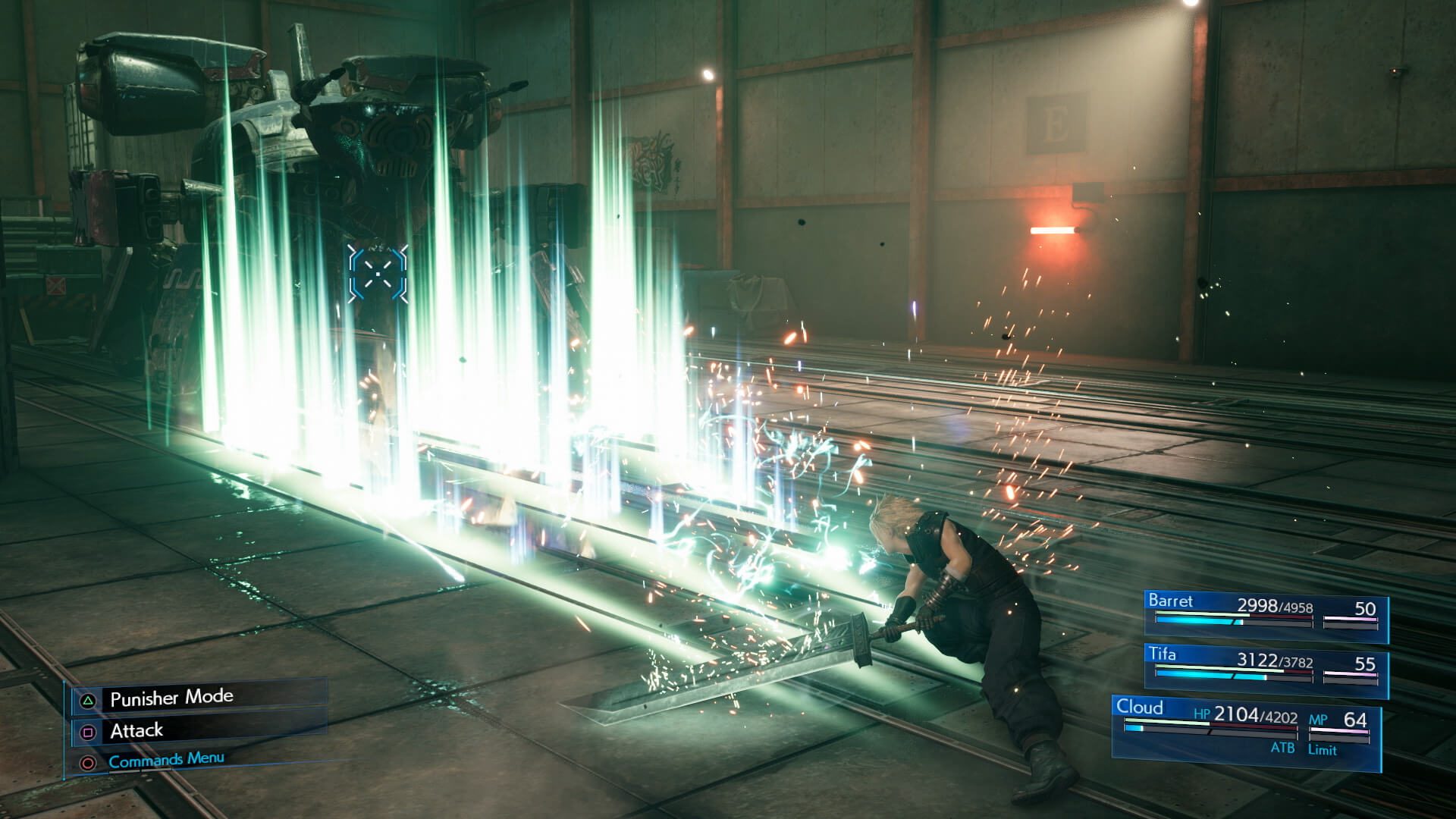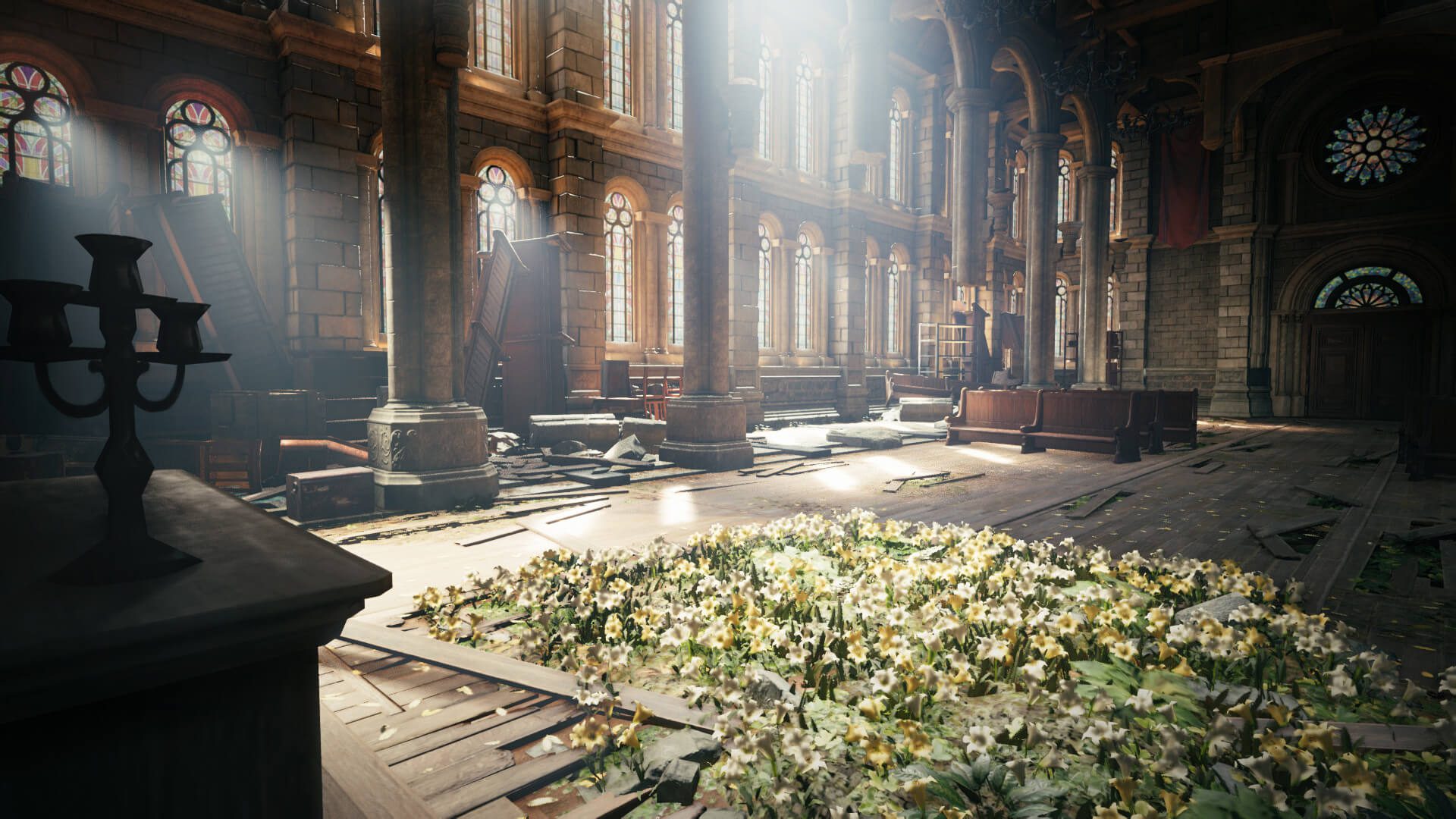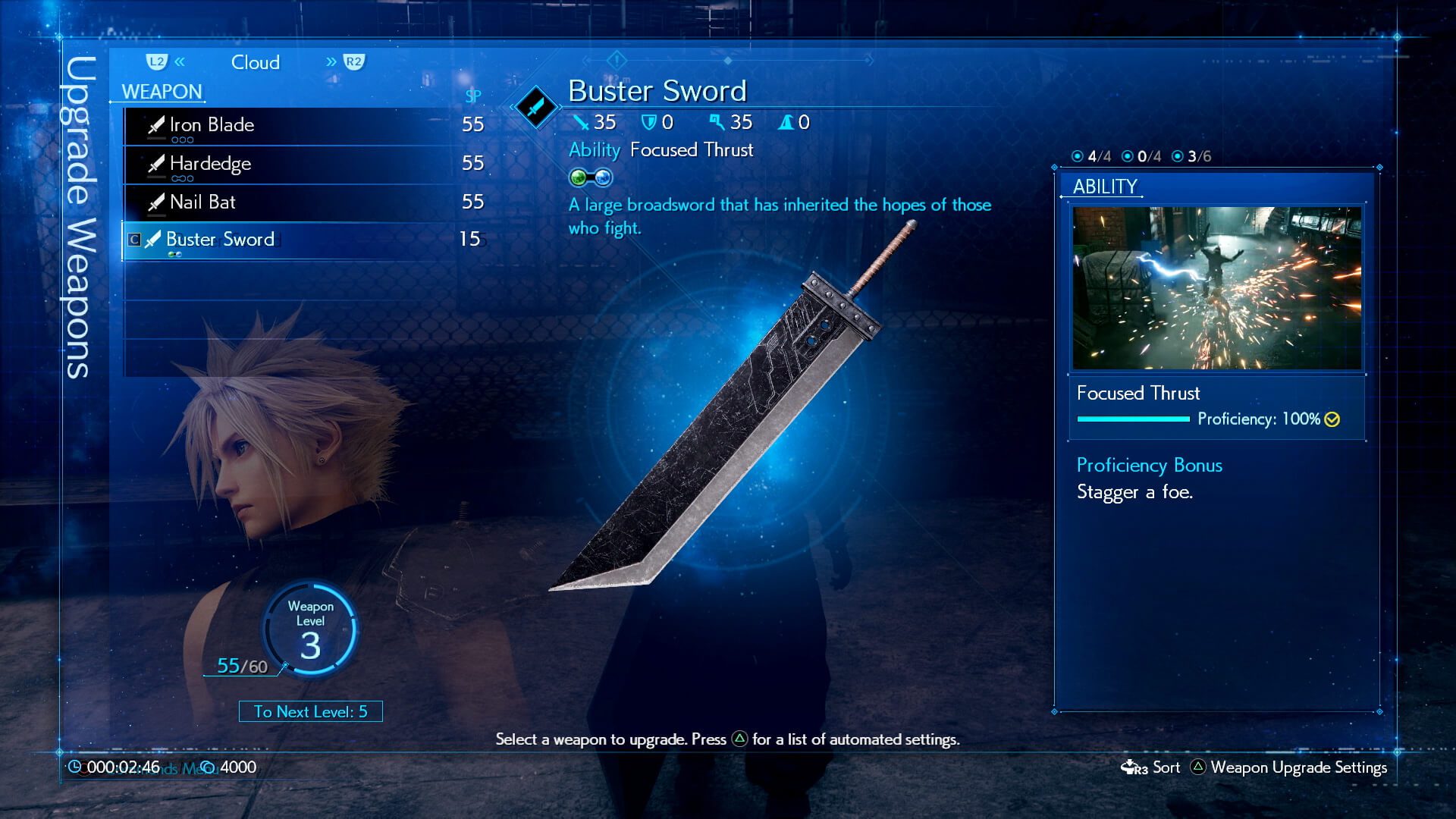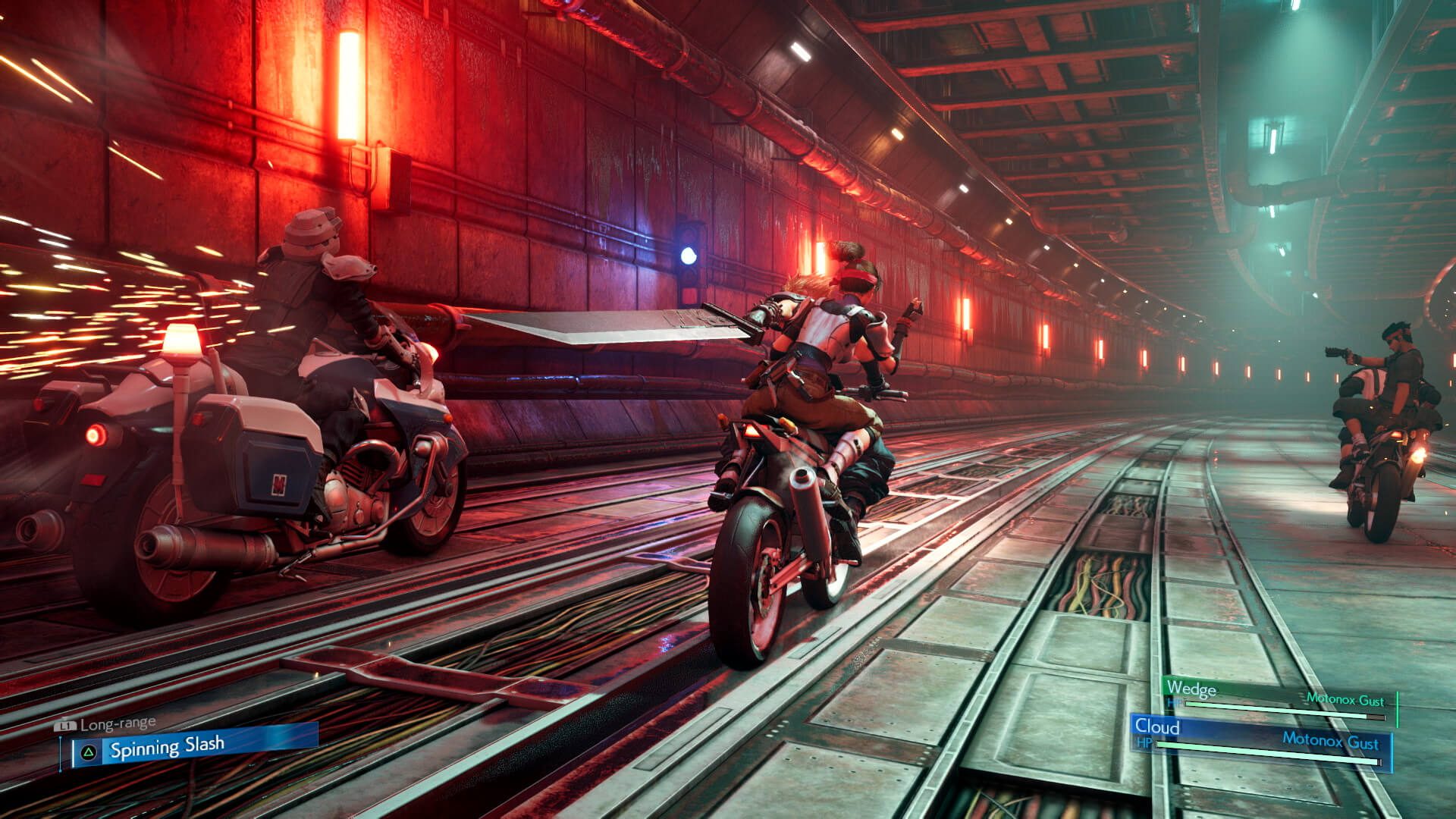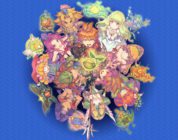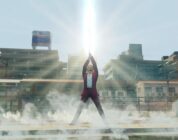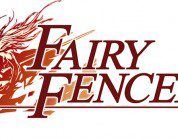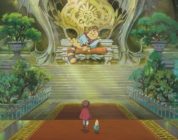Final Fantasy VII is undoubtedly one of the most beloved games of my life and its accomplishments is certainly no small feat when it comes to staying power. This game singlehandedly sparked the interest of many non-RPG players around the world back in 1997 and it’s a game that’s continually had fans thirsty for more. Forgive me here, but I’m going to allude to some things that I’m not going to link to, but the research is pretty easy to manage. Final Fantasy VII got a spin-off on the PS2 in the form of a janky shooter hybrid amalgamation titled Final Fantasy VII: Dirge of Cerberus – likely due to Vincent’s Hot Topic vampire fan appeal in 2006, while the confusing visions of Zack Fair in Nibelheim led to PSP’s Final Fantasy VII: Crisis Core in 2007. In 2005, Final Fantasy VII got a feature film titled Advent Children which went a little deeper into the story so fans could better understand the connection of Mako and the Lifestream. That’s a fairly impressive accomplishment for a game that, while continually praised by fans as one of the best video games of all time, also got a bit of reputation for possibly being the most returned video game in retailer history due to a marketing campaign that advertised Final Fantasy VII as playing like an action/adventure movie and hiding the fact that it’s a menu-based, story-driven, text-heavy, Japanese role-playing game.
“But wait,” I can hear you saying, “I thought Final Fantasy VII was so great that people bought it based on the recommendations of other gamers alone?” Ah, the cries of younger gamers now falling on the grizzled ears of those who came before. No, my child, Final Fantasy VII was very much a niche product of the PlayStation era – but it was such a technical marvel that it paved the way to introduce the super nerdy role-playing game genre to a whole new sea of fans, and it ushered in elements that became staples of the genre from that point on. You see, deceptive advertising worked, and Sony (and by proxy Squaresoft) made a shit load of money based on those advertisements. While Final Fantasy VII isn’t my favorite in the series – the overarching end of the world story is fairly generic, character development is mostly bland and lacking, and it’s got more plot holes than a block of swiss cheese unattended in a mouse farm – its impact is undeniable, and that’s why it’s so beloved.
“But if it’s not as good as other Final Fantasy stories,” you continue, “Why is it the one getting remade?” Simple. Money. With money comes a chance to write that which wasn’t finished; Final Fantasy VII was a game that they ran out of time developing, so in remaking this game, they’re now able to roll in these alternate experiences and expanded stories into one fully canon story, now faithfully retold to a new and returning audience.
Final Fantasy VII Remake starts off by doing exactly what you’d expect a remake to do. The graphics have been greatly improved, the core mechanics were updated to feel more current, and the story was modified so that things not originally included to complete the tale in a way that wasn’t possible during its original creation. Unfortunately, for those of us who quite literally grew up with this game and expected this story to unfold in a certain way, Tetsuya Nomura has been drinking his own Kool-Aid for so long that he’s turned Final Fantasy into his other most successful creation, Kingdom Hearts. This isn’t a knock on Nomura himself, so much as a way to say that I’m fine with Kingdom Hearts doing what it does because it’s fully explained in that series and it makes sense – but in the world of Final Fantasy VII it doesn’t make any sense at all and it’s lazy.
That is as much as I will go into detail because any further discussion would spoil things for you, and that’s not what this review is about.
Going back to what Final Fantasy VII Remake does right, the graphics are gorgeous. What made Final Fantasy XV bright and vibrant is clearly reflected here in this remake and character models look fantastic, as well as the sweeping scenery and backgrounds. The cutscenes are just as glorious as watching Advent Children and the voice acting, while sometimes a little bit shaky, is mostly decent. Seeing the character details when they’re wearing certain pieces of their gear looks great, as is the attention to detail as equipped materia is visible on weapons. You can see the materia equipped most notably in Cloud’s sword, but you can also see it on Tifa’s bracelet or the side of Barret’s gun. I personally would have enjoyed seeing the equipment vary just a bit more – such as visible changes in their bracelets or visible accessories, given the focus on detail, but I understand why they stopped where they did.
What I don’t understand is why some things look incredible while other things look like untextured placeholders. The apartment doors in Sector 7 are probably the single biggest offender, looking like a piece of badly colored cardboard when the rest of the building is textured and weathered. The main characters look so much better than literally everyone else, it’s like walking a NECA figure through a LEGO village.
Combat isn’t quite as good as what I’d hoped after playing Final Fantasy XV, but it’s somewhere between Kingdom Hearts and Final Fantasy XIII. The ATB system limits your actual abilities or actions while you can simply mash away on the square button to do basic attacks. I think it would have been a bit more enjoyable if spells and items weren’t tied to the ATB, but it’s not bad enough that it warrants more than a small mention. What is worth mentioning is how comically worthless usable items are. Aside from having the auto-item materia heal me a few times, I played through the entirety of the game without using a single item due to the abundance of breakable boxes that would restore MP and by using the rest benches which heal HP and MP to full and appear often enough. It’s unfortunate that the hard mode unlocked after finishing the game is artificially inflated by not allowing you to use items, which makes the collection of said items even more useless since you won’t need them for a normal playthrough and you can’t use them when you’d actually want them.
The camera is often useless or terrible in Final Fantasy VII Remake. More times than I could count, I’d auto-lock onto an enemy in combat only for the camera to slightly move and my character to completely miss the attack. This was even more noticeable in certain corridor sections like when in the vents in Shinra tower, as you couldn’t really see much of anything and the angles were less useful than the standard top-down camera view. While it was fine in some areas, in others it was a hindrance and more commonly felt like a pain in the ass than a tool to allow you to see what was really going on in an environment.
This all brings me to my final point: Everything about Final Fantasy VII Remake is passable, but nothing feels fully fleshed out. The parts of the story that were changed feel like they were written on sticky notes and stapled to the script at the last minute. Even to new players, the parts of the story that have been changed or added are glaringly obvious. The changes don’t feel connected, nor do they flow with how the story unfolds in its original format. Instead of just adding some garnish to the finished product, they attempted to spice up the recipe and the game as a whole suffers for it. It’s already shameful that this game doesn’t even include all of the events of the first disc of the original game but painfully stretches out small sequences in order to fill time. Parts feel like a burden and it becomes more of a slog than a joy to experience.
At one point during the completely unnecessary backstory for the guy who watches the door at Don Corneo’s house, I finally had to start skipping cutscenes because there was no reason to care about a character that maybe had three lines of dialogue in the original story. I fully understanding fleshing out Jessie, Biggs, Wedge, and even some of the other smaller supporting characters like Marle, but throwaways are a joke and lend nothing to the story but artificial inflation for the sake of making a short experience stretch to cover more time than it’s supposed to.
I’m anxious to see just how deep the rabbit hole goes in the future iterations of this remake but for now, I’m less than impressed. There are some terrific improvements, and the soundtrack is still just as excellent as it was when I first played this game in 1997, but the story itself hasn’t aged well and these new liberties are paltry and weak. I’m hoping to be wowed in Remake part two.
Final Fantasy VII Remake was reviewed on a PlayStation 4 Pro and was provided for review by Square Enix. More information can be found on the official website. Screenshots and the featured image are public images found on the official website.

